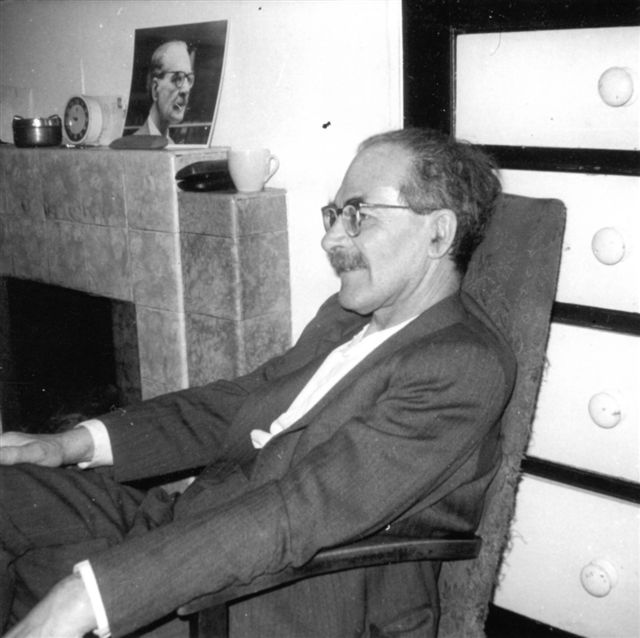Bunting’s anniversaries
6 January 2014 by Infinite Ideas in Basil Bunting and A strong song tows us
by Richard Burton, author of A strong song tows us
Mark Ford, in his review of A Strong Song Tows Us in The Guardian, makes a connection that I haven’t seen anywhere else. “Of course,” he writes, “this biography has been written because in 1965 Bunting published Briggflatts, considered one of the greatest poems of the century.” Strangely enough it had never occurred to me that there was a semicentennial coming up but there’s no doubt that there is. Actually Ford is a little premature. The poem wasn’t published until the January 1966 edition of Poetry and didn’t appear in book form until the following summer, when Stuart Montgomery’s Fulcrum Press published it. But the first reading of Briggflatts was at the Morden Tower in Newcastle-upon-Tyne on 22 December 1965, so that allows us to claim an anniversary in 2015. A Strong Song Tows Us has had an odd relationship with Bunting’s anniversaries. I first introduced the idea of a biography of Bunting to the then publisher of his poetry, Oxford University Press, in 1995. The obvious publication date would have been 2000, the anniversary of his birth, but OUP weren’t interested and I shelved the project. And then Keith Alldritt’s imaginative reconstruction of Bunting’s life came out in 1998 and, in my view, did more damage than good to Bunting’s reputation.
In March this year I noticed another anniversary just as I was finishing the manuscript and putting the final touches to the introduction. I realised that it was 100 years to the month since Bunting stood in the Quaker burial ground in Brigflatts for the first time. In some ways that is the most important anniversary of all. As I wrote in A Strong Song Tows Us, it wasn’t just Brigflatts’ sprit of place that buoyed Bunting up through his tumultuous life. The clink of its stonemason’s chisel shaped his art. Meditation in the Quaker meeting house shaped his philosophy. His love for the stonemason’s young daughter, Peggy Greenbank, stayed alive through fifty years of separation.
Faber’s forthcoming edition of Bunting’s Complete Poems in 2015 will mark the 50th anniversary of Briggflatts’ appearance and will raise the profile of this extraordinarily neglected poet. It’s a shame it’s at least 75 years too late. We can blame T. S. Eliot for that.
For more information on the life and work of Basil Bunting, visit our dedicated site at www.basilbunting.com.

